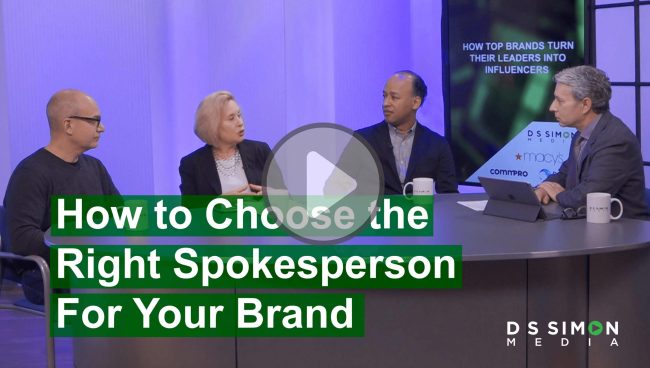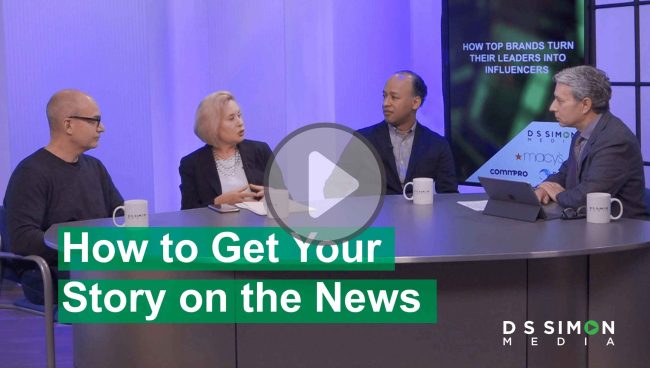Learn How to Choose the Right Spokesperson For Your Brand
Communication executives from leading brands, like Macy’s and Danone North America, discussed how to effectively use your brand spokespeople and shared tips on how to train internal experts and prepare for interviews. Learn how to get your story on the news here. Watch the full discussion here. MODERATOR: Doug Simon, CEO, D S Simon Media PANELISTS: Orlando Veras, Director of National Media Relations, Macy’s, Inc. Michael Neuwirth, Senior Director, External Communications, Danone North America Jeanne…



